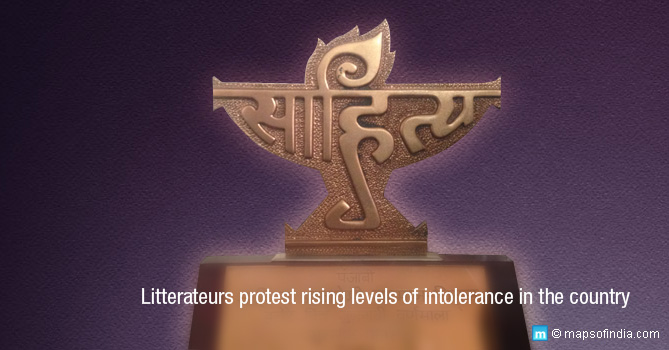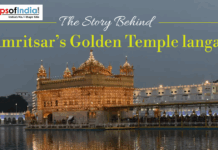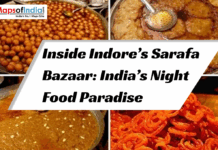Is art and freedom of expression seriously in jeopardy? Or, is it just a trend that Uday Prakash and Nayantara Sahgal set in motion. These authors were the first to refuse the Sahitya Akademi Award and this has now turned into an avalanche of sorts with more authors, filmmakers and even a scientist joining the fray. While a minimum of 11 prominent literary figures in the country have already said no to this prestigious award, 12 filmmakers have returned their National Awards and scientist P.M. Bhargava has returned his Padma Bhushan. The story does not end here. Three others have also resigned from their posts in the Sahitya Akademi as a mark of protest against what has been termed as rising levels of intolerance in India – a rather unfortunate, yet true, situation these days in a country reputed to be one of the largest democracies in the world. CR Prasad and KS Ravikumar have put down their papers with the Malayalam advisory board and EV Ramakrishnan has resigned from the English advisory one.
Salman Rushdie’s role
Salman Rushdie, a noted author who perhaps needs no introduction having penned so many memorable works till date, has played an important role in this entire chain of developments. In a tweet he has expressed support for writers who have taken to rejecting the Sahitya Akademi Award owing to strictures being imposed on free expression in India. Filmmakers, on the other hand, made the move to show solidarity towards the agitating students of Film and Television Institute of India. Maya Rao, a noted theatre personality and danseuse, too, has given back her Sangeet Natak Akademi Award, thus adding a new facet to the entire series of protests. Faced with in excess of 25 rejections from various prominent authors, Sahitya Akademi has decided to summon an executive board meeting on 23 October to discuss the issue.
Punjab joins the movement
Punjab has also become a part of the movement now with five translators and writers joining the list of distinguished litterateurs to have rejected the Sahitya Akademi honour. Surjit Patar, perhaps the most famous among the contemporary poets of Punjab and a Padma Shri Awardee, is one of the latest to have joined the abovementioned list. The other important names in this regard are Darshan Buttar and Jaswinder, famous poets; Chaman Lal, a well-known translator; and Baldev Singh Sadaknama, a noted novelist.
Hardev Chauhan, a famed children’s writer, has stated that he will be giving back the NCERT award he had received back in the 90s. In recent times 11 and more authors from this North Indian state have said no to this award. Patar received an Akademi award in 1993 for his book named Hanere Vich Sulagdi Varanmala, which translates to ‘words smouldering in the dark’.
He has said that it is painful that writers, thinkers, and scholars are now being murdered in a country as diverse as India is, in terms of languages, religions, and cultures. The poet has also termed the fact that the ones responsible are still at large and being sheltered by political figures, is more painful than the murders themselves. Jaswinder, Sadaknama, and Buttar have issued a joint statement where they have stated these protests are their way of protesting and they are willing to go to any length to combat lack of tolerance.
What are other authors saying?
Other major names in this regard are Rajesh Joshi and Manglesh Dabral, noted Hindi authors; Ghulam Nabi Khayal, noted Kashmiri author; Srinath DN, famed Kannada author; N Shivdas, a famous Konkani author; and GN Ranganatha Rao. Joshi and Dabral have already criticised the government in a severe manner for having clamped down on the freedom of expression.
They have said that limits are being imposed not only on writers but food habits as well, perhaps referring to the recent death of a man for consuming beef. Dabral has told the media that certain sections of the party in power have been up in arms against the Muslims thus creating a tense communal atmosphere across the country. He has even said that in such a situation even someone as vocal as Narendra Modi has maintained silence, something which he finds quite ironic. Khayal has stated that the main reason he has given the award back is the present state of unease among the minorities, who feel they are never safe and under constant threat. According to the Kashmiri author they do not see a bright future for themselves in the country.
Khayal has also referred to the recent murder of noted author Kalburgi for questioning the logic of building temples for Nathuram Godse who murdered the Father of the Nation, Mahatma Gandhi in 1948. He has called upon the respective state government, as well as the central administration, to find out the criminals responsible so that such an incident does not repeat itself in future.
What do the directors have to say?
In a country like India, artistic expression has always been of ample importance. Thus it is both striking and heart-wrenching to see the creative minds give away their awards. In a memorandum signed by them, the filmmakers, clarified that they were in complete support of the students of Film and Television Institute of India and would not let them bear the weight of the entire protest all by themselves. The move came soon after Rakesh Shukla, Vikrant Pawar and Prateek Vats – noteworthy alumni of the Film and Television Institute of India, Pune, declared that they would return their awards to make people aware about the rising intolerance in the country. Some other popular filmmakers include Dibakar Banerjee, Anand Patwardhan, Nishtha Jain, Rakesh Sharma, Paresh Kamdar, Harshvardhan Kulkarni, Indraneel Lahiri, Kirti Nakhwa, Lipika Singh Darai and Hari Nair.
Reaction of government
Mahesh Sharma, the Culture Minister, has stated that he is sure something startling may be revealed if the true motives behind the latest spate of rejections are explored. He has further said that the concerned authors could have expressed their grievances and concerns with the proper authority – central or state governments in this case – perhaps implying that what they did was not right. Arun Jaitley, who holds the Information and Broadcasting portfolio, said that there was something “obvious” in the filmmakers’ action of choosing to return the awards while state assembly elections are underway in Bihar.
| Name | Field | Name of the Award | Year of Receiving | Date of Return |
|---|---|---|---|---|
| Uday Prakash | Hindi writer | Sahitya Akademi Award | 2010 | 09/12/15 |
| Nayantara Sahgal | Indian English writer | Sahitya Akademi Award | 1986 | 10/06/15 |
| Ashok Vajpeyi | Hindi poet | Sahitya Akademi Award | 1994 | 10/07/15 |
| Sarah Joseph | Malayalam novelist | Sahitya Akademi Award | 2003 | 10/10/15 |
| Ghulam Nabi Khayal | Kashmiri writer | Sahitya Akademi Award | 2009 | 10/12/15 |
| Rahman Abbas | Urdu novelist | Sahitya Akademi Award | 2011 | 10/18/15 |
| Waryam Sandhu | Punjabi writer | Sahitya Akademi Award | 2000 | 10/11/15 |
| Gurbachan Singh Bhullar | Punjabi writer | Sahitya Akademi Award | 2005 | 10/11/15 |
| Ajmer Singh Aulakh | Punjabi writer | Sahitya Akademi Award | 2006 | 10/13/15 |
| Atamjit Singh | Punjabi writer | Sahitya Akademi Award | 2009 | 10/11/15 |
| GN Ranganatha Rao | Kannada translator | Sahitya Akademi Award | 10/11/15 | |
| Mangalesh Dabral | Hindi writer | Sahitya Akademi Award | 2000 | 10/11/15 |
| Rajesh Joshi | Hindi writer | Sahitya Akademi Award | 2002 | 10/12/15 |
| Ganesh Devy | Gujarati writer | Sahitya Akademi Award | 1993 | 10/11/15 |
| Srinath DN | Kannada translator | Sahitya Akademi Award | 2009 | 10/15/15 |
| Kumbar Veerabhadrappa | Kannada novelist | Sahitya Akademi Award | 2007 | 10/15/15 |
| Rahmat Tarikere | Kannada writer | Sahitya Akademi Award | 2010 | October 2015 |
| Baldev Singh Sadaknama | Punjabi novelist | Sahitya Akademi Award | 2011 | 10/12/15 |
| Jaswinder | Punjabi poet | Sahitya Akademi Award | 2014 | 10/12/15 |
| Darshan Battar | Punjabi poet | Sahitya Akademi Award | 2012 | 10/12/15 |
| Surjit Patar | Punjabi poet | Sahitya Akademi Award | 1993 | 10/12/15 |
| Chaman Lal | Punjabi translator | Sahitya Akademi Award | 2002 | 10/13/15 |
| Homen Borgohain | Assamese journalist | Sahitya Akademi Award | 1978 | 10/17/15 |
| Mandakranta Sen | Bengali poet | Sahitya Akademi Award | 2004 | 10/13/15 |
| Keki N Daruwalla | Indian English poet | Sahitya Akademi Award | 1984 | 10/15/15 |
| Nand Bhardwaj | Rajasthani Hindi writer | Sahitya Akademi Award | 2004 | 10/15/15 |
| Krishna Sobti | Hindi, Punjabi, Urdu writer | Sahitya Akademi Award | 1980 | 10/10/15 |
| Munawar Rana | Urdu Poet | Sahitya Akademi Award | 2014 | 10/18/15 |
| Maya Krishna Rao | Theatre artist | Sangeet Natak Akademi award | 2010 | 10/12/15 |
| Megh Raj Mitter | Punjabi writer | Shiromani Lekhak award | 2001 | 10/12/15 |
| Dibakar Banerjee | Filmmaker | National Award | 2008 | 10/29/15 |
| Rakesh Sharma | Filmmaker | National Award | 2004 | 10/29/15 |
| Nishtha Jain | Filmmaker | National Award | 2014 | 10/29/15 |
| Anand Patwardhan | Filmmaker | National Award | 1986, 1990, 1992, 1996, 2004, 2012 | 10/29/15 |
| Paresh Kamdar | Filmmaker | National Award | 1994 | 10/29/15 |
| Kirti Nakhwa | Filmmaker | National Award | 2008 | 10/29/15 |
| Harshavardhan Kulkarni, | Filmmaker | National Award | 2008 | 10/29/15 |
| Hari Nair | Filmmaker | National Award | 1997 | 10/29/15 |
| Indraneel Lahiri | Filmmaker | National Award | 2015 | 10/29/15 |
| Lipika Singh Darai | Filmmaker | National Award | 2014 | 10/29/15 |
| PM Bhargava | Scientist | Padma Bhushan Award | 1986 | 10/29/15 |




